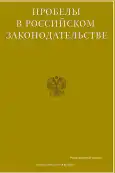The Role of Sambo in Professional and Applied Physical Training of Students of Educational Organizations of the Ministry of Internal Affairs of the Russian Federation
- Authors: Knyazev K.O.1
-
Affiliations:
- North Caucasus Institute for Advanced Studies (branch) of the Krasnodar University of the Ministry of Internal Affairs of Russia
- Issue: Vol 15, No 5 (2022)
- Pages: 57-61
- Section: Articles
- URL: https://journal-vniispk.ru/2072-3164/article/view/147589
- ID: 147589
Cite item
Abstract
The purpose of this study is to study the role of combat sambo in the process of professional-applied physical training of students of educational organizations of the Ministry of Internal Affairs of Russia. Sambo differs from all types of wrestling in that it combines many techniques of each of these sports and simplifies the learning process. Sambo is an abbreviation for "unarmed self-defense" and involves training an employee in various self-defense techniques against both armed and unarmed opponents. The arsenal of Sambo techniques consists of throwing techniques, suffocating and painful techniques, holding techniques. Thanks to such a large number of different techniques, sambo is an ideal martial art. Given the constant growth of crime in the country, law enforcement officers face a wide range of tasks to suppress criminal activity and prevent the commission of crimes. The continuous fight against crime puts a heavy burden on employees of various departments, and the level of their physical fitness directly affects the quality of their work in an environment of shortage of qualified personnel. Therefore, the teachers of physical training departments are faced with the task in the process of teaching students to achieve a certain level of physical fitness, to form stable skills in the use of combat fighting techniques, as well as in detaining and prosecuting offenders. In this case, sambo is one of the optimal solutions to the problem. The unpopularity factor of Sambo has a negative impact on its use in the training process of students. Today, most of the teachers do not have a sufficient level of knowledge in the field of sambo, hence it is impossible to talk about its effectiveness, since in the educational and training process many prefer hand-to-hand combat or other types of martial arts. In connection with the foregoing, we consider it expedient to deepen the knowledge of teachers in the field of SAMBO in order to be able to teach its techniques to students of educational organizations of the Ministry of Internal Affairs of Russia.
Full Text
##article.viewOnOriginalSite##About the authors
Kantemir Olegovich Knyazev
North Caucasus Institute for Advanced Studies (branch) of the Krasnodar University of the Ministry of Internal Affairs of Russia
Email: islam-2604@mail.ru
Senior Police Lieutenant, Lecturer of the Physical Training Department Nalchik, Russia
References
- Gvozdkov P.Yu. Improving the methods of physical training, cadets and students of educational institutions of the system of the Ministry of Internal Affairs of Russia on the basis of sports sambo // Uchenye zapiski universiteta im. P.F. Lesgaft. 2020. No. 4 (182). pp. 94-96.
- Gorshkov Yu.V., Baev V.E., Karpov A.A. Sambo as a universal martial art // In the collection: Improving the physical training of law enforcement officers. Digest of articles. Editorial Board: S.N. Barkalov [i dr.]. Eagle, 2017. pp. 72-75.
- Makarov V.M., Zhuravlev A.A. Self-defense and fighting methods of struggle in the activities of employees of the internal affairs bodies of the Russian Federation // Police and Investigative Activities. 2015. No. 3. pp. 45-213.
- Muslimov R.A. The use of sambo wrestling techniques for teaching combat techniques to employees of internal affairs bodies // Scientific and methodological electronic journal Concept. 2016. No. T15. pp. 2466-2470.
- Thomas A.V., Vasilkova E.V. Sambo in special physical training of police officers: theoretical and applied aspects // Actual problems of combating crimes and other offenses. 2019. No. 19-2. pp. 185-187.
- Tyukin V. G., Krestyaninov V. A., Knyazev S. A., Shcheklein Yu.N., Tomas A.V., Knis D.A. Sambo for cadets of educational organizations of the Ministry of Internal Affairs of Russia / textbook // Publisher: Federal State Educational Institution of Higher Professional Education "Barnaul Law Institute of the Ministry of Internal Affairs of the Russian Federation". Barnaul, 2019. 143 p.
- Tyukin V.G., Matveychuk N.S. Sambo and prospects for its development in educational institutions of the Ministry of Internal Affairs of Russia // In the book: Physical culture and sport in the structure of vocational education: retrospective, reality and future. Materials of the All-Russian scientific-practical conference. East Siberian Institute of the Ministry of Internal Affairs of Russia. Irkutsk, 2020, pp. 146-148.
- Chekhranov Yu.V. SAMBO Techniques in Professional Applied Physical Training of Employees of the Internal Affairs Department of Russia // In the collection: Integration of science and practice in martial arts. XVII International Scientific and Practical Conference dedicated to the memory of the Honored Master of Sports of the USSR, Honored Trainer of the USSR, Professor Evgeny Mikhailovich Chumakov. 2018. pp. 180-185.
- Chekhranov Yu.V. Sambo in professional-applied physical training of police officers // In the collection: Topical issues of improving professional training in the internal affairs bodies of the Russian Federation. Materials of the All-Russian round table. Academy of Management of the Ministry of Internal Affairs of Russia. 2019. pp. 254-257.
- Shcheklein Yu.N. Influence of Sambo on the development of professional skills of cadets and listeners of the system of the Ministry of Internal Affairs of Russia // In the collection: Law and the rule of law in the third millennium. IX Baltic Legal Forum. Materials of the international scientific-practical conference. Kaliningrad, 2021, pp. 147-148.
Supplementary files








